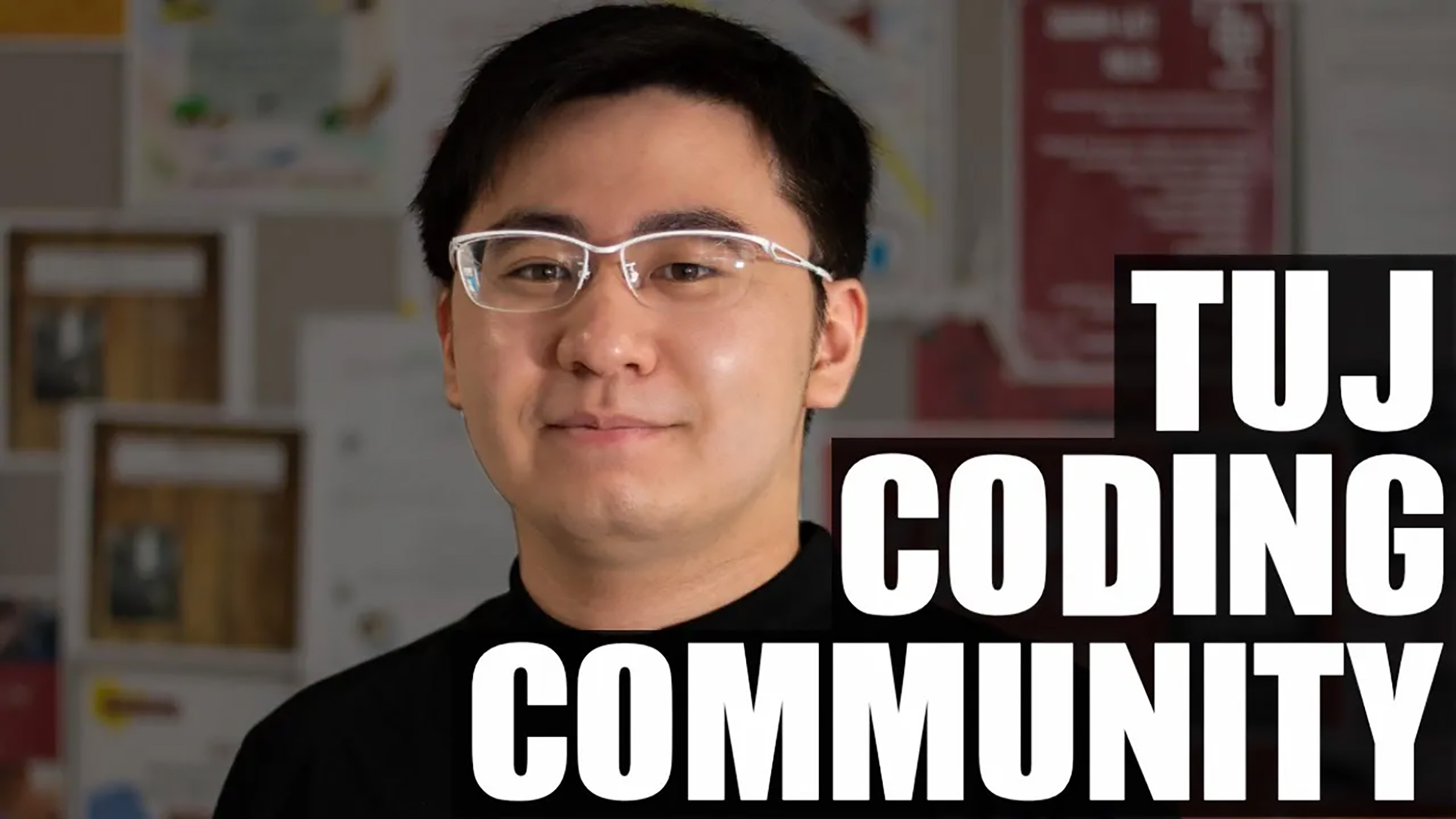Temple University, Japan Campus’ (TUJ) official LINE account, which was launched in October, was created by a student who only started learning computer programming less than two years ago. The mastermind of the project, Keita Nakashima, a junior majoring in computer science, used hundreds of hours with the members of the club he founded to lead the project.
The creation of the official LINE chatbot has helped improve the college life of TUJ students in such ways as acquiring club information, receiving announcements of school events, and making appointments with Academic Advising. A chatbot is a form of artificial intelligence used in message applications and a computer program that simulates human conversation through voice comments or text chats or both.
Nakashima originally started programming to create a new application exclusively for the TUJ club called the Coding Community, but he never expected it to be used for the entire university. He was never a programming guru until he started attending TUJ in January 2020. But he fell in love with programming after taking the basic courses with Hani Karam, assistant professor, and coordinator of the computer science department.
“I started computer programming after entering TUJ and I had no experience,” Nakashima said. “In my first semester, I took the course to learn C and Python (computer programming languages). I wanted to do more, and I started creating minesweeper games. I showed them to Assistant Professor Karam and he gave me positive feedback. That made me feel good.”
Karam described Nakashima as being “very enthusiastic and very self-motivated” which are the key criteria of becoming a good computer scientist. “I’m sure he’ll become an excellent computer scientist,” Karam said. “Keita is always very helpful. He is open to helping his fellow students and me whenever I asked him to. He is also very positive.” Karam recommended Nakashima form a club related to computer science as TUJ didn’t have such a club then.
Nakashima founded the club Coding Community in September 2020. One of the members, Shota Iimura, a junior majoring in economics, shared a similar observation about Nakashima. Iimura played a key role in coming up with many ideas on designs, spending between 100 to 200 hours on the project during the summer break in August. “Working with Keita is always enjoyable since I never had the experience of being creative,” Iimura said. “I’m glad that I was able to use my time for TUJ and make something that we could deliver to TUJ students,” he said.
The process of creating the official LINE account consumed an enormous amount of time. Nakashima also faced challenges in recruiting more members. Still, he motivated himself and united the members by showing his passion. “I had so many ideas,” he said. “I even started programming just after getting up in the morning and continue all the way until about 10 in the evening and then I went to sleep and went on the next day. That kind of cycle kept on repeating. 500 hours sounds intense, but for me it was short. I wasn’t measuring time. I was just having fun, as others do playing basketball, playing soccer, or maybe practicing dancing.”
Nakashima has liked science since he was a child and was interested in learning about the universe and outer space. He is from Fukuoka prefecture in Japan’s major southern island of Kyushu. He was a member of a science committee at his local elementary school in Fukuoka. Still, he only learned English when he moved to Sri Lanka with his family in 2016 when he was in high school. He attended an international school and a college there and transferred to TUJ last year. “I understood English grammar and could listen and read, but I couldn’t speak,” he said. “By the end of high school in Sri Lanka, I was able to hold a conversation in English. I was good at math and physics, so many of my friends came up to me to ask questions. My English improved after arriving at TUJ and, even more, after I formed the Coding Community as I had to use the language to communicate with members.”
Nakashima, who was on the dean’s list in the spring semesters of 2020 and 2021, is set to transfer to the main campus in Philadelphia in January to complete his degree in computer science. In the program, known as “two-plus-two”, students study at TUJ for two years and complete the degree at the main campus in two years. But Nakashima is planning to graduate in one year in Philadelphia, having acquired sufficient credits at TUJ.
“I still can’t imagine about going to the U.S.,” Nakashima said. “But I’m looking forward to studying on the main campus as there are many courses which I want to take, such as mobile application development and machine learning courses.”
The mastermind of the official TUJ LINE account said that he will miss TUJ, especially the opportunity to meet with club members and professors. He hopes club members and all TUJ students will follow his example.
Nakashima said many of his club members are non-science majors. He stressed the importance of meeting goals and making a breakthrough in the process. “It’s hard, but you need to pass through a certain point,” he said. “But if you are able to do that, basically you can create anything.”

